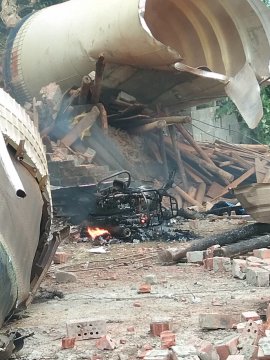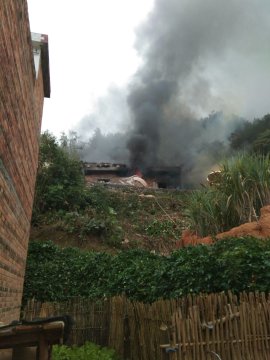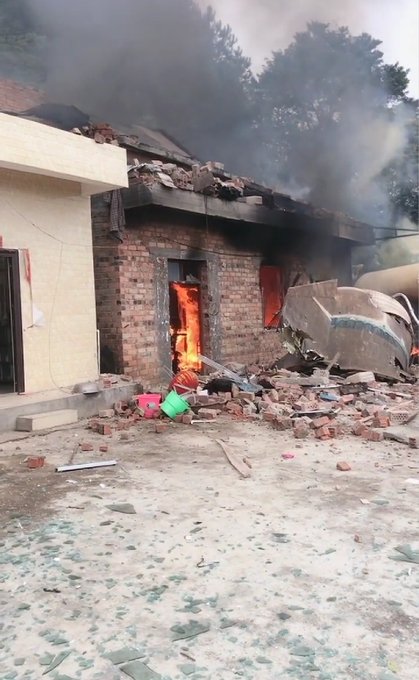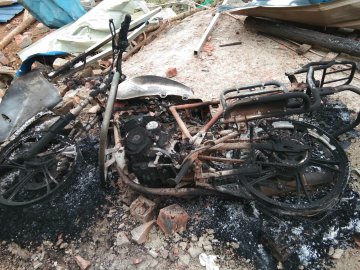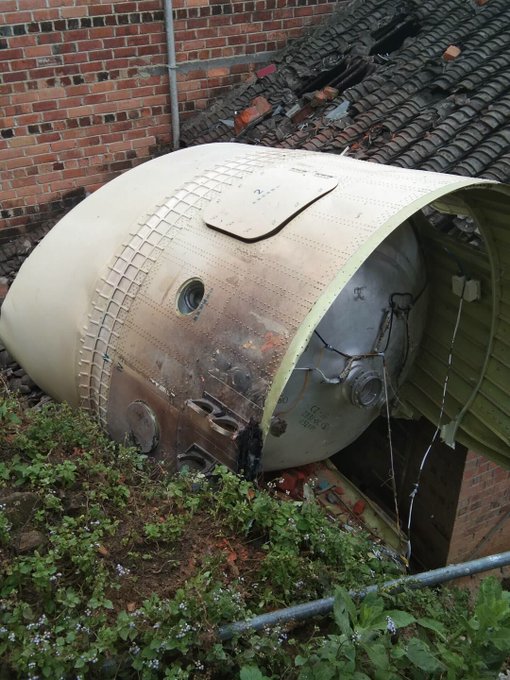space cadet
SENIOR MEMBER
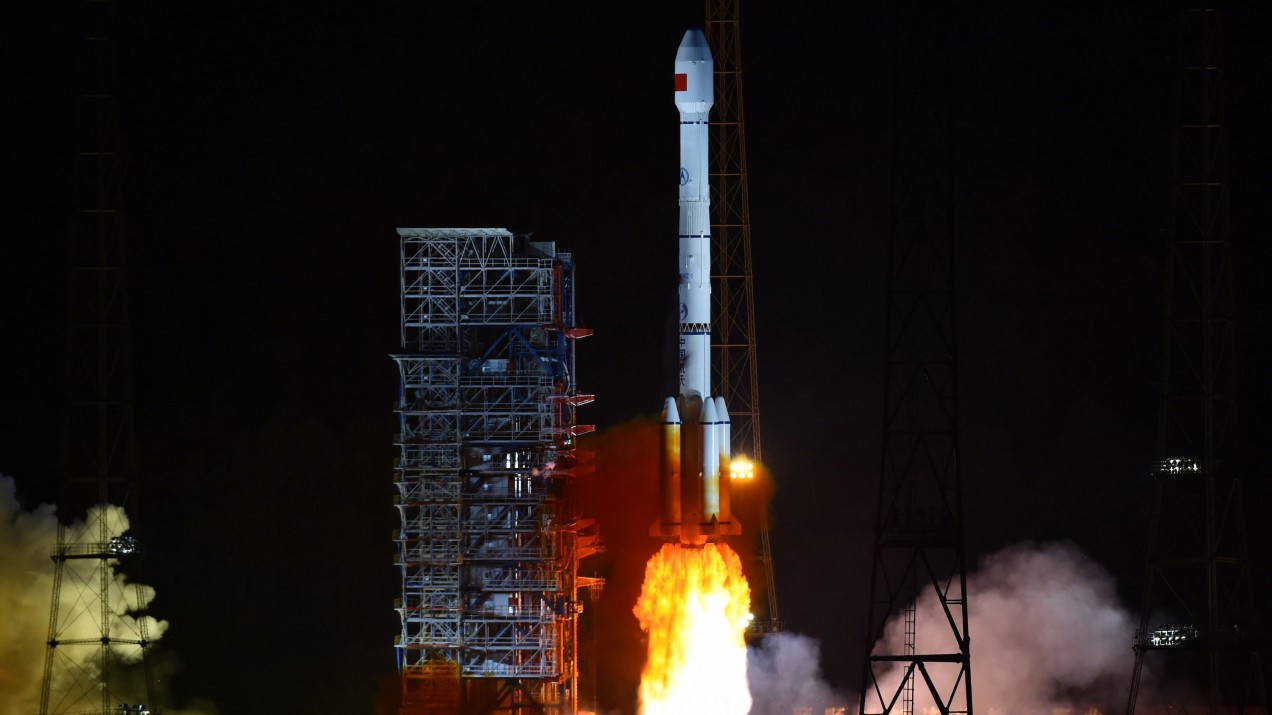
A Long March 3B launch from the Xichang Satellite Launch Center.
XINHUA
Space
A falling rocket booster just completely flattened a building in China
Despite how easy it is to prevent, China continues to allow launch debris to rain down on rural towns and threaten people’s safety.
by Neel V. Patel
Nov 27, 2019
Last Saturday, China launched a pair of satellites into orbit from its Xichang Satellite Launch Center. On social media, however, the main event was what happened on Earth: a booster from the launch smashed right into a building in the country’s rural south-central region. No one was injured, but videos and photos of the incident showed wreckage left in the booster’s wake, with toxic rocket fuel evaporating.

Andrew Jones@AJ_FI
https://twitter.com/AJ_FI/status/1198173691378618368
This is the aftermath downrange following a Chinese Long March 3B launch from Xichang early Saturday. And that yellow smoke is very toxic hypergolic propellant. Source: https://weibo.com/3279752321/Ihy1liV5Y?refer_flag=1001030103_ …
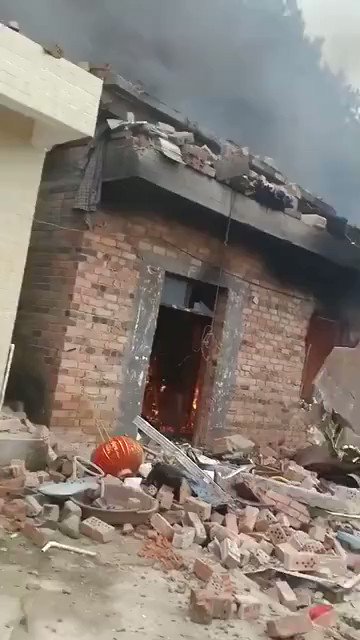
1,358
2:37 AM - Nov 23, 2019
Twitter Ads info and privacy
834 people are talking about this
It’s the latest incident in China’s long history with falling rocket partscausing destruction below. The most infamous crash occurred in 1996, when the first Long March 3B launch saw the rocket veer off course and crash into a village, killing an unknown number of people (possibly hundreds, by some Western estimates).
25 people are talking about this
“Any time you have stuff going up, there’s a possibility it’s going to come down where you don’t plan for it,” says Victoria Samson at the Secure World Foundation. “So there’s a reason why you don’t fire over populated land.” That’s why most countries launch over water.
So why doesn’t China? “This entire issue is down to geography,” says Thomas Roberts, a former aerospace security fellow at the Center for Strategic and International Studies. All three of China’s main spaceports are located in the mainland, including the Xichang site. They all save money by flying missions east (which requires less fuel to get into space), but that route takes them over vulnerable populations.
China issues evacuation notices to communities downrange, but even if people aren’t harmed or killed by the physical impact of a crash or by direct exposure to rocket fuel (which can lead to severe organ failure or cancer), the wreckage could pollute nearby rivers and streams used for irrigation and drinking water. Launches from the Soviet Union’s old Baikonur Cosmodrome in Kazakhstan, built in 1955, have caused more than 2,500 tons of debris to rain down on the surrounding region, leading to health problems for thousands.
So the issue isn’t new, but the space industry is expanding rapidly. “The more launches you have, the more chances you have for something to go wrong,” says Samson.
Luckily, the solutions aren’t complicated—they just require political will. China can launch over the water if it wants, through its spaceport on the island of Hainan in the South China Sea. Operational since 2014, it’s been seldom used because of launch failures and a less developed infrastructure. But these issues are fixable with enough investment.
China could also just change its flight paths. For example, Israel’s Palmachim Airbase can’t launch to the east because of obvious geopolitical conflicts. So it sends rockets over the Mediterranean Sea and through the Strait of Gibraltar. This requires putting a satellite in a retrograde orbit—one that moves in the opposite direction of Earth’s rotation. This requires much more fuel, but it entirely avoids populated areas.
And some emerging technologies might enable rockets to fly over populated areas more safely. Grid fins (lattice structures that can slightly modify control and speed) and parafoil features (aluminum foils that work like kites or parachutes), like those SpaceX uses, could help steer falling rocket boosters to vacant lands. Roberts thinks AI could one day be used to better assess downrange risks to communities before launch. One proposal led by SpaceX calls for building a flight corridor heading south that would fly rockets over populated areas as long as they can demonstrate a perfectly functional automated abort feature.
There’s one very cheap tool that could increase pressure on China and other groups to take steps to mitigate launch debris hazards: social media. Weibo and Twitter helped make images and videos of the latest crash go viral––a massive boon to the poor, rural victims, who are rarely seen or heard.



